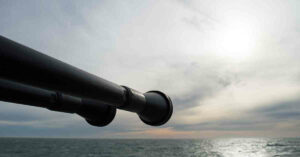
Belgian Farmers Block Roads To Zeebrugge Port Over Rising Costs And EU Policies
February 1, 2024
Houthis Threaten To Continue Attacking U.S. & British Warships
February 1, 2024
By mid-February, member nations associated with the EU plan to send out a naval force into the Red Sea to defend vessels from attacks by Houthi terrorists in Yemen. Yemen’s Houthi-controlled areas have developed into a flashpoint for maritime instability, with attacks targeted against ships believed to be connected to Israel.
The Houthis, who define their activities as an answer to what they appear as a genocide in the disputed Palestine, assert sympathy with the Palestinian people amid the Israeli military offensive continuing in Gaza. In the words of Josep Borrell, the EU operation will be called Aspides, meaning protector. The objective would be to avert and intercept commercial attacks; however, it would not engage in direct combat with the Houthis.

Nearly 40% of the EU trade with Middle Eastern and Asian nations traverses the waters of the Red Sea, making the region critical for the EU. The mission’s focus on maritime security aligns with the broader efforts of the EU to protect economic interests and enable safe navigation via essential trade channels.
France, Italy, and Greece have also shown interest in leading the mission, with seven nations reflecting that they’d be willing to send out naval assets, per the diplomats, adding that it’d be based on the existing EU missions in the zone. The operation initially would see three vessels under the EU command. Italy and France already have warships in the zone, and Germany plans to send the Hesse frigate to the zone, per the diplomats.
The introduction of the Aspides mission reportedly marks the EU’s choice to diverge from the US-led mission launched in December, which has experienced Britain and the US launching airstrikes on the Houthi positions, highlighting Europe’s reservations on being under Washington’s command.
Given the complicated geopolitical dynamics involving several stakeholders, the EU encounters the risk of escalating tensions inadvertently in the region, upholding the need for meticulous planning and diplomatic finesse in navigating the turbulent Red Sea. Maritime security is a concern as the waters of the Red Sea are a crucial trade route linking Africa to Asia, connecting the Mediterranean Sea and the Indian Ocean.
The ongoing conflict has also prompted the shipping majors to steer clear of the region, opting for a lengthy and cost-effective detour through Africa. This disruption, which impacts more than 12% of the worldwide trade, poses price-rise and inflation risks for import-heavy African nations such as Ghana, Ethiopia, Egypt, and Nigeria. While circumventing the waters of the Red Sea adds to central sailing time and costs, it opens up newer opportunities for the African nations to benefit from the rising maritime traffic accompanied by trade diversions.
Reference: African news
EU to Launch Red Sea Naval Mission Against Houthis By Mid-February appeared first on Marine Insight – The Maritime Industry Guide
Source: Maritime Shipping News


